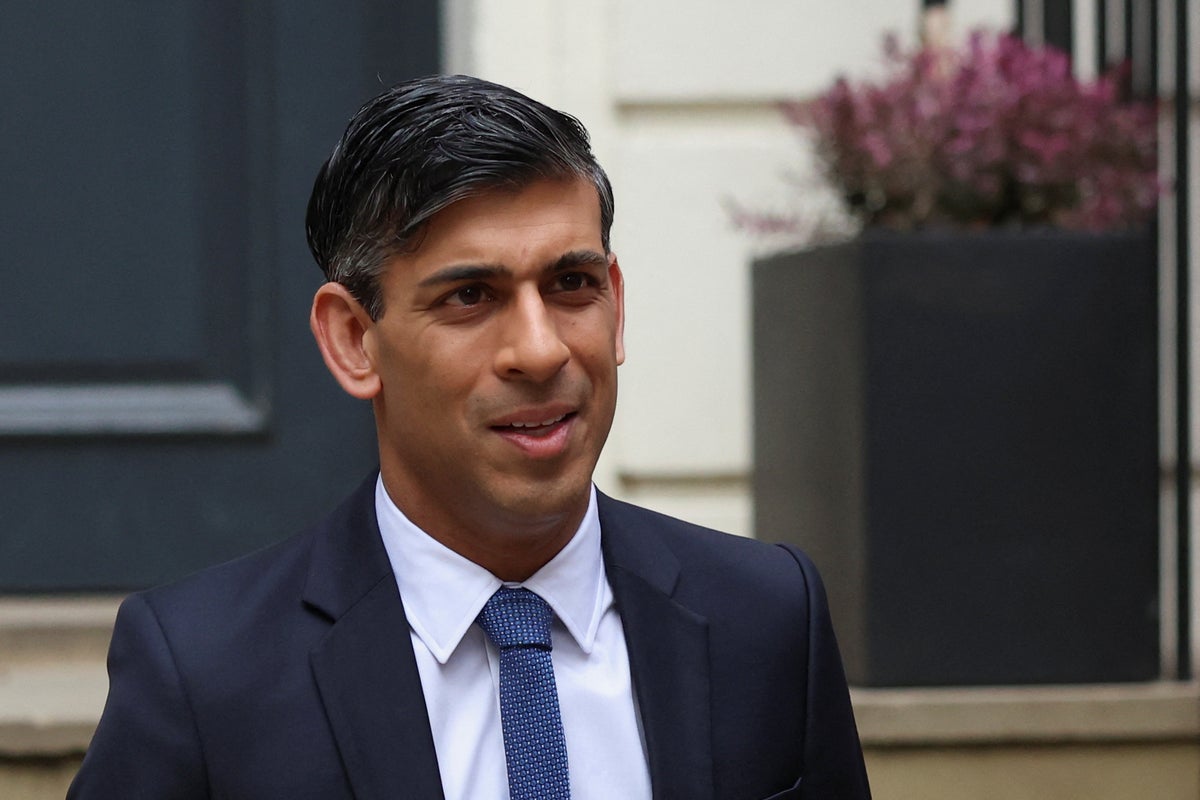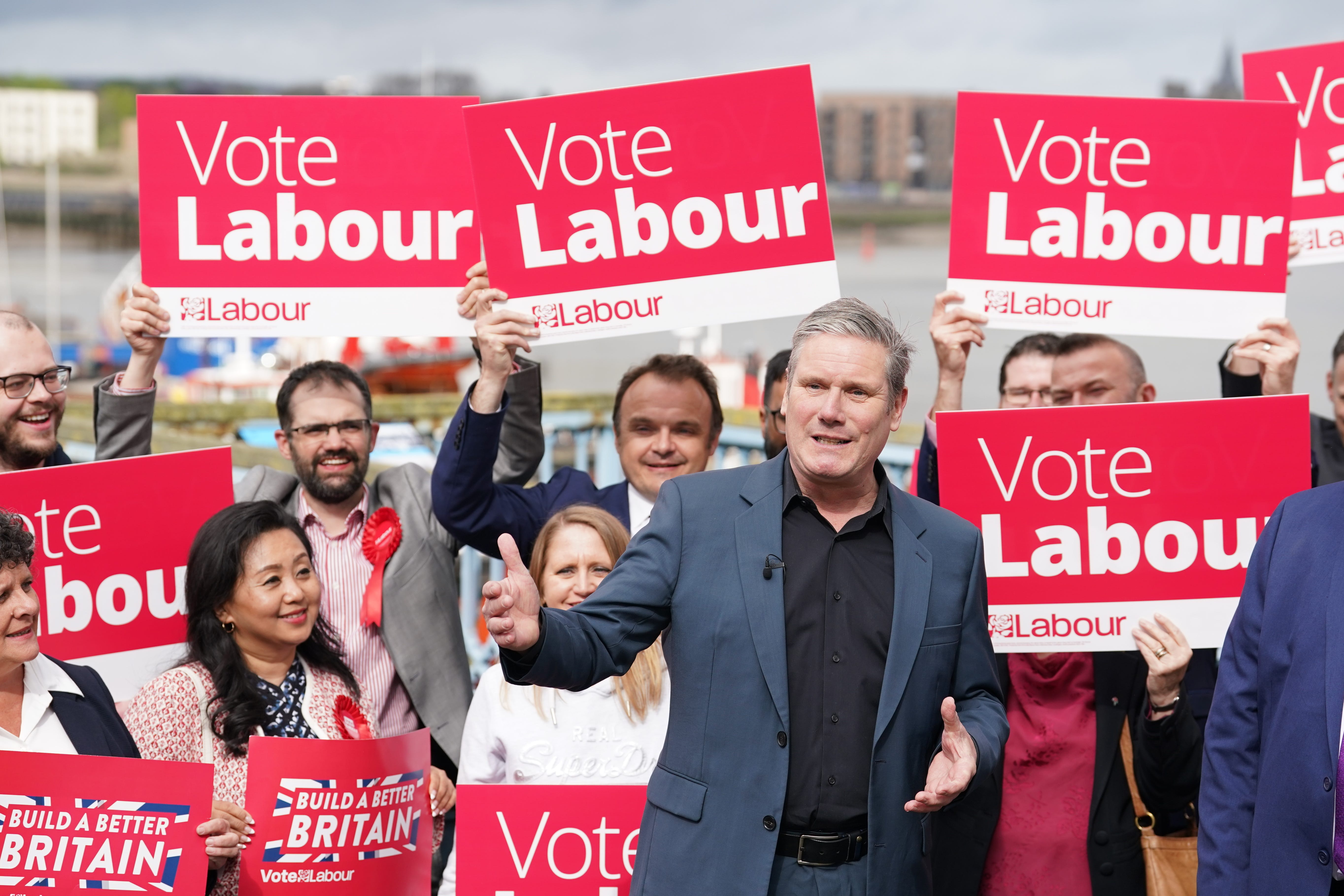
Rishi Sunak is under pressure from senior Conservatives to deliver on his flagship pledges after his own party chair described the disastrous local election results as a “wake-up call”.
The prime minister was dealt a major blow in his first election test as the Tories lost dozens of councils to Labour and the Lib Dems, leading to comparisons with the dire days of the mid-1990s.
His MPs warned that voters now needed to see tangible improvements in the NHS and the economy before next year’s general election if they were to vote for the Tories.
As a blame game erupted within the party, allies of Mr Sunak also challenged his critics to speak out and not “whisper anonymously”.
It comes as:
- One calculation suggested the Tories were “not far off” the “rock-bottom” support seen under John Major
- Sir Keir Starmer claimed the results meant Labour was on course for a majority government at the next general election
- Experts warned it was a close-run fight and Labour’s support “may just be enough” to win
- The Lib Dems and the Greens saw major breakthroughs, with the latter winning sole control of a council for the first time
Mr Sunak conceded the results were "disappointing" but defiantly insisted he had not detected a “massive groundswell of movement” towards Labour.
With close to all 230 contested councils declared, the Conservatives had lost more than 1,000 councillors and 49 local authorities.
Some 22 of those are now controlled by Labour, which had picked up more than 500 councillors – while the Liberal Democrats pocketed 12 local authorities and over 400 councillors.
Among the councils now controlled by Labour are those in key general election battlegrounds, where the party hopes to unseat Tory MPs, including Swindon, Medway, Dover and East Staffordshire. Among the councils snatched by the Lib Dems was Windsor and Maidenhead, where former prime minister Theresa May is MP.
After overnight counting, experts suggested the Tories could lose a totemic 1,000 seats, but that threat appeared to recede as the day went on.
Before the vote, the prime minister had warned the party faced a “hard” set of elections in the wake of the “box-set drama” of recent months after the ousting of both Boris Johnson and Liz Truss from No 10 last year.
As ex-councillors across the country lined up to blame the government, veterans minister Johnny Mercer described it as a “terrible night” for the party, while Tory chairman Greg Hands said it was a “wake-up call”.
Senior Tories said Mr Sunak now had to show definite progress on his key priorities before next year’s general election.
One former cabinet minister, who supported Mr Sunak’s bid to become Tory leader, told The Independent he now had to “deliver on his five priorities”, which includes halving inflation in a bid to ease the cost of living crisis and cutting health service waiting lists.
Lord Barwell, a Tory peer who served as Mrs May’s chief of staff in No 10, said Mr Sunak had to “deliver improvements on the key issues that matter”, including growing the economy and rebuilding the NHS. But he warned Mr Sunak now faced a “hell of a job” to close the gap with Labour.
There were also calls for outright policy changes, with veteran MP Sir John Redwood saying voters would have turned out if the party had offered Tory policies. He criticised “high taxes, lack of control of our borders, and too much local and national government interference”.
Home secretary Suella Braverman was also warned to “do her job” and “address the big issues of the day” by Tory MP Rehman Chishti, who said her rhetoric on illegal migration “feeds into the far right”, at a count in Kent where the party lost Medway Council.
Sir Keir, meanwhile, hailed "fantastic" results, which he said showed Labour had won back the trust of voters and put the party “on course for a Labour majority at the next general election”.

His party won a series of key battlegrounds, including Stoke, where it hopes to take back seats at the general election.
A projected national vote share, calculated for the BBC by the noted polling expert Sir John Curtice, found that if all of Britain had voted, and behaved the same way, Labour would take 35 per cent of the vote, the Conservatives 26 per cent, Liberal Democrats 20 per cent and others 19 per cent.
Sir John said that 26 per cent was “not far off rock bottom … where John Major was at in the 1990s”. But he warned, based on these results, that Labour might struggle to win the next election.
He said that it “may just be enough to take Labour to [a majority] in the House of Commons".
Professor Michael Thrasher predicted for Sky News: “Labour easily becomes the largest in a hung parliament but falls 28 seats short of an overall majority.”
The Liberal Democrats also hailed “groundbreaking” results, which leader Sir Ed Davey said showed people were “sick to the back teeth” of the Conservative government. As the election post-mortem examination got underway, Tory MPs also criticised the party’s election campaign.
One said that there had been “no concept of modern campaigning”, accusing the party of blanketing voters with leaflets rather than identifying those who might support it. There was also criticism that seats in the “blue wall” in the south had been Tory for so long the party had not done enough to identify its own voter base.
One Tory staffer campaigning in the south of England told The Independent the party only targeted households they thought were almost certain to vote Conservative. The campaign team had not wanted to encourage others to vote for fear they would back another party, and the alternative of them not voting at all was deemed preferable, they said.
Mr Sunak will try to get back on the front foot next week with the publication of the government’s long-awaited NHS primary care plan, designed in part to free up more GP appointments.
Former defence secretary Liam Fox predicted the PM would “own these results” and challenged critics within their party to not “whisper anonymously”.
It followed a claim from a loyalist of Mr Johnson and Ms Truss that the prime minister would have “no option but to own these results” after three years in charge of the UK economy and because “it was he and his supporters who forced Boris and then Liz out of office in order to install him in Downing Street”. Speaking to the BBC, they added: “It is little wonder so many previous Conservative voters failed to back us yesterday.”







